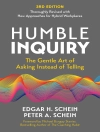This book re-shapes thinking on ‘gender gaps’—differences between men and women in their incomes, their employment and their conditions of work. It shows how the interaction between regulation distance and content, labor segmentation and norms helps us understand various aspects of gender gaps.
It brings together leading authors from industrial relations, sociology, politics, and feminist economics, who outline the roles the family, state public policy, trade unions and class play in creating gender gaps, and consider the lessons from international comparisons. While many studies have focused on the role of society or organizations, this book also pays attention to the role of occupations in promoting and reinforcing gender gaps, discussing groups such as apparel outworkers, film and video workers, care workers, public-sector professionals like librarians, chief executives, academics, and coal miners.
Thisbook will be of interest to practitioners, policy makers, academics and students interested in understanding why inequality between men and women persists today—and what might be done about it.
Tabla de materias
Part I: Concepts.- Regulation Distance, Labor Segmentation, and Gender Gaps.- Gender and Class Relations.- Regulating for Equality: Modalities of Regulation and Gender Gaps.- The Changing Sexual Politics of Gender Regulation by Unions.- Employment Regulation and Worker-Carers: Reproducing Gender Inequality in the Domestic and Market Spheres?.- A Cross-National Comparison of Gender Gaps.-
Part II: Occupations.- Structuring Gender Relations Among Coal Mine Workers.- Female-Dominated Regulation-Proximate Occupations: Librarians and Other Public-Sector Professionals.- Academics: How Career Structures and Segmentation Undermine Pay Regulation.- Why Do Women at the Top of Organizations Do Worse?.- A Comparison of Australian and Indian Women Garment and Footwear Homeworkers.- Policy Ecologies, Gender, Work, and Regulation Distance in Film and TV Production.-
Part III: Conclusions.- The Persistenceof Gender Gaps.
Sobre el autor
David Peetz is Professor of Employment Relations at Griffith University, Nathan, Australia. He is the author of Unions in a Contrary World and Brave New Workplace, co-author of Women of the Coal Rushes and a co-researcher at the Interuniversity Research Centre on Globalization and Work, Montreal.
Georgina Murray is Associate Professor at Griffith University, Nathan, Australia. She is the author of many articles and papers, as well as Capitalist Networks and Social Class in Australia and New Zealand, co-author of Women of the Coal Rushes, and co-editor of Financial Elites and Transnational Business: Who Rules the World?.












